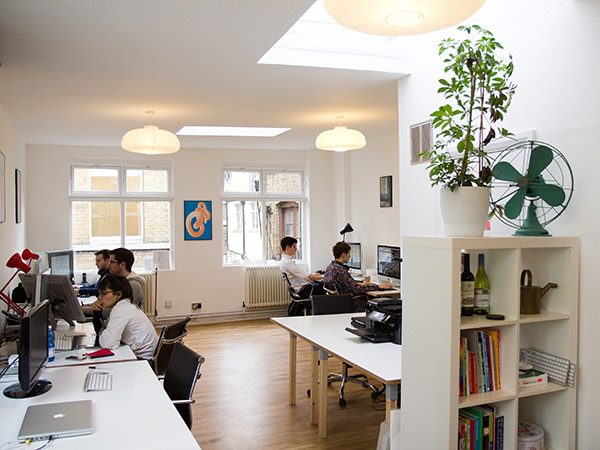Chambers Judd is a digital design and development agency founded in 2010. It currently employs four full-time members of staff at its studio in Shoreditch, east London. James Chambers, founder and director of Chambers Judd, on...
The importance of getting in the zone... I think it’s important not to interrupt people when they are working unless it's absolutely necessary. While we have a relatively communal workspace everyone has a good pair of headphones so they can remove themselves from the work environment and focus on one thing for a long period of time. It's funny but people seem a lot less inclined to interrupt someone if they have headphones on. These long periods of uninterrupted concentration are, in my opinion, the best thing to help people get in the zone for creative work.
The need to make opportunities for sharing... It seems like a lot of our most interesting ideas come about when people are just chatting in the pub or as a side note to another project we’re working on so it would be good to make a bit more of a space for that to happen. It seems a bit ironic but I know some studios who have quite a formal coffee break setup (e.g. every day for 15 minutes at 11am and 4pm) with the specific goal of encouraging more informal sharing of ideas, so that might be interesting to have a look at.
We have made a conscious effort this year to spend more time as a group. We have introduced a weekly studio catch-up and a more extended monthly one to look at everyone’s work and talk about other studio projects we might want to do.
How the creative process could be improved... The access to workshop and production facilities while studying at the Royal College of Art was pretty spectacular. You could have an idea in the morning and be 3D printing it or turning it on the lathe in the afternoon. There was so little friction between having the idea and making it a reality which was immeasurably valuable to the creative process.
The difficulties for digital studios staying up-to-date... I think the most challenging thing about running a digital studio is that the work uses a mix of so many different technologies, all of which are changing. Even a basic web project can happily use five different programming languages, and no two projects are the same. For me it’s about finding the voices I respect and keeping an eye out for what they are saying. Things trickle through on Twitter too — I think the most interesting stuff finds you eventually.
Also having said it’s challenging, it’s the diversity of the work which makes it so interesting and rewarding.
Asking for the right help... We had absolutely no management experience when we started. I think getting a good accountant was one of the best things we did. That side of things all seems very intimidating until you get some advice and having someone take the fear out of it and explain it in English was very important. Also I think it’s important not to try and think too far ahead — a five year plan didn’t really make sense for us.
The differing needs of a digital studio... We don’t have a huge amount of physical reference. The nature of the work we do is inherently ephemeral so although we have a small library we don’t need a huge archive to immerse ourselves in. We started the Hover States blog though to help us keep the online work we feel is really noteworthy.
The ideal studio... The ideal studio is one where people look forward to coming to work in the morning.
